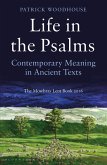Judith A. Merkle examines the situation of Christian spirituality today, in a secular age, through the images of dance, silence, and music. Drawing on the work of Charles Taylor as well as core aspects of the tradition of Christian theology on discipleship, Merkle asks how these new conditions affect the practice of Christianity as modern discipleship.
The author calls God the music maker. She argues that response to the reality of God can be captured through the image of dance. Merkle reminds us that people in secular society connect to God in diverse ways, not in the least through the call of creation and the call of conscience. She explores discipleship as a lens through which we can understand how a community of faith, service, prayer, worship, and sacramentality can be viewed and integrated in daily life. She emphasizes how the interconnection between prayer, Eucharist, and a believing community is inseparable from the dance of discipleship as it can be lived in secular society. The image of dancing to silent music is a powerful symbol of Christian religious experience in modern times.
The author calls God the music maker. She argues that response to the reality of God can be captured through the image of dance. Merkle reminds us that people in secular society connect to God in diverse ways, not in the least through the call of creation and the call of conscience. She explores discipleship as a lens through which we can understand how a community of faith, service, prayer, worship, and sacramentality can be viewed and integrated in daily life. She emphasizes how the interconnection between prayer, Eucharist, and a believing community is inseparable from the dance of discipleship as it can be lived in secular society. The image of dancing to silent music is a powerful symbol of Christian religious experience in modern times.









